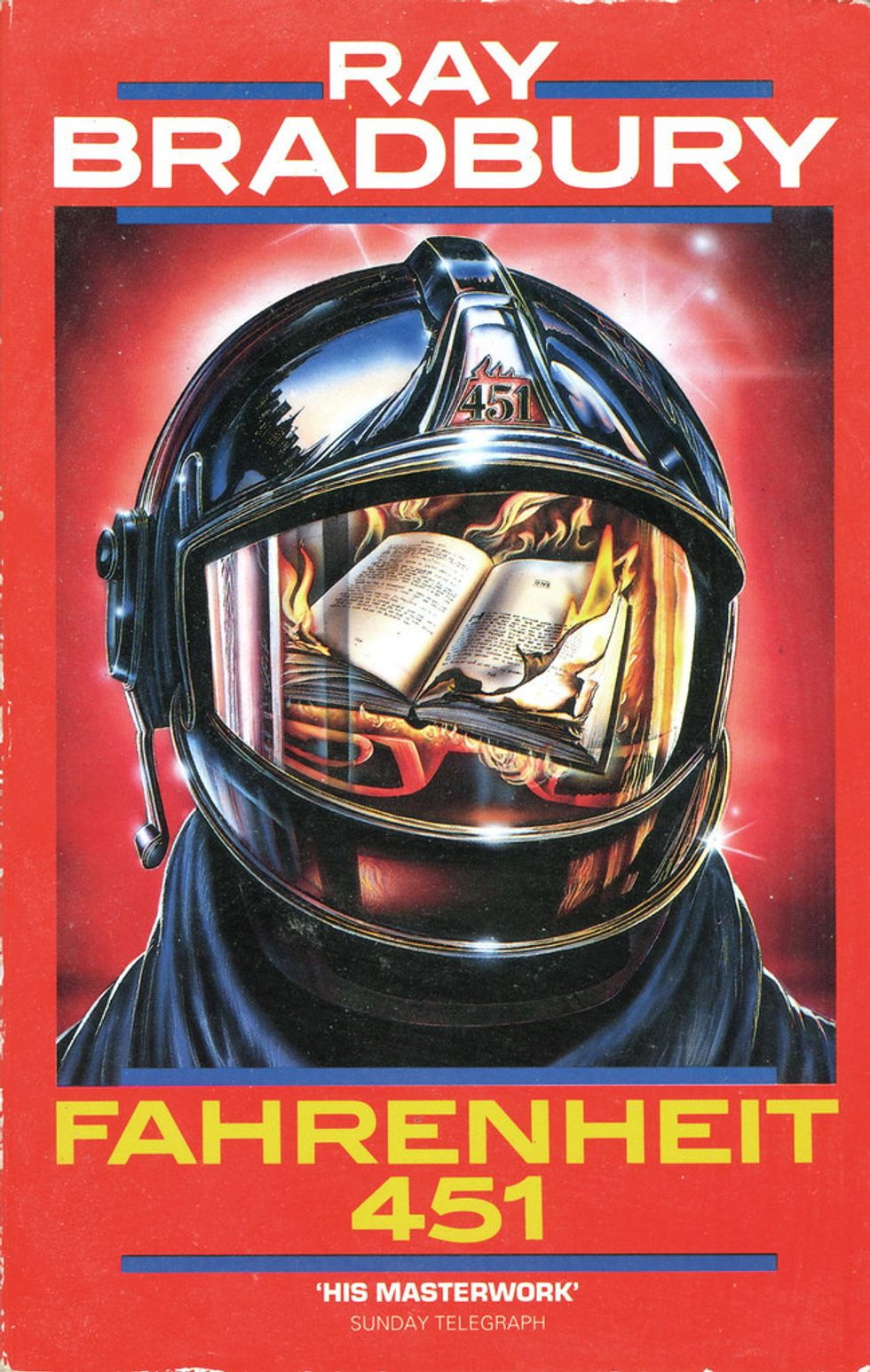Ray Bradbury wrote a remarkable novel, with hundreds of different messages for readers today. The messages in the novel are small, but powerful for the readers today. They are powerful because of the outstanding because of the parallels between our world and the dystopian world in the novel. This magnificent novel is titled Fahrenheit 451.
For those who may not know, Fahrenheit 451 is about a man named Guy Montag, and he is a firefighter. However, in the novel, the firefighters destroy the house instead of saving them, but they only destroy the houses with novels inside of them. They do this because the novels are illegal in their time. At the beginning of the novel Montag believes that he has a great job and he never questions it, but as the novel accelerates a series of people and actions make him start to question why he became a firefighter.
First, starting with Clarisse by asking him if he was happy, then the woman who burned herself because she believed life was not worth living without them. Lastly, the man he saw reading in the park, who gave him his number for future use. This man's name was Faber, and he helped Montag leave the city towards the end of the novel. Controversially, there were people like his wife, Mildred, and his boss, Captain Beatty, who were consistently telling him that novels are bad and that he should continue destroying them. As the novel goes, on Montag realizes that the novels are good, and at the end of the novel, he meets another man named Granger who tells him more about the novels and what they do with them. So as one could see one of the big, powerful messages in this novel censorship, and that is still around today.
Censorship by definition is "forbiddance; ban," according to dictionary.com. In the novel, censorship is the novels, and people cannot read them. The people cannot read the novels because "the leaders" want everyone to have the same amount of intelligence, so no one knows more than someone else does because it is considered unfair. In Fahrenheit 451, the people also censor the radios and television shows people watch like Millie watches her "real family" in the parlor, which is censored by the government. Just as numerous amounts of information are censored in the novel, there is censorship in our worlds, as well. For example, music can be censored to ensure nothing bad comes out. Along with that, the internet is censored, to ensure that the people do not get to know information that they are not supposed to. This is just one way the novel is similar to the novel, another way the novel is similar to the technology.
The technology is very similar to the novel because it shows how our world may change into the dystopian world in the novel because most people in the United States do not even read books anymore unless it is truly required. Another example is the Mechanical Hound because right now, we use dogs, but in another twenty years, I am sure that we will start using robots to find the criminals. That is the future, if one were to see the parallels between the technology in the book and the technology in our world now they would see that it is very similar. For instance, we have voice-modulated systems that tell us if someone is at the door, and we have the television, just like in the novel.
As anyone can see that there are multiple parallels between our world and the dystopian world in the novel. It is very clear that there are multiple messages that Bradbury is trying to tell us, from censorship, to how technology can affect our future lives. However, I believe that message that Bradbury is trying to make clear through these small messages is that we should get off our technology, and looks outside and enjoy nature, like Clarisse, or even take a book to the park and read it, like Faber. Bradbury is trying to make it clear that if there are no books to read or any people that are more intelligent, then it is not a world worth living in. Therefore, all of this makes Fahrenheit 451 have a powerful message because of the similarities between our world and the world in the novel.













